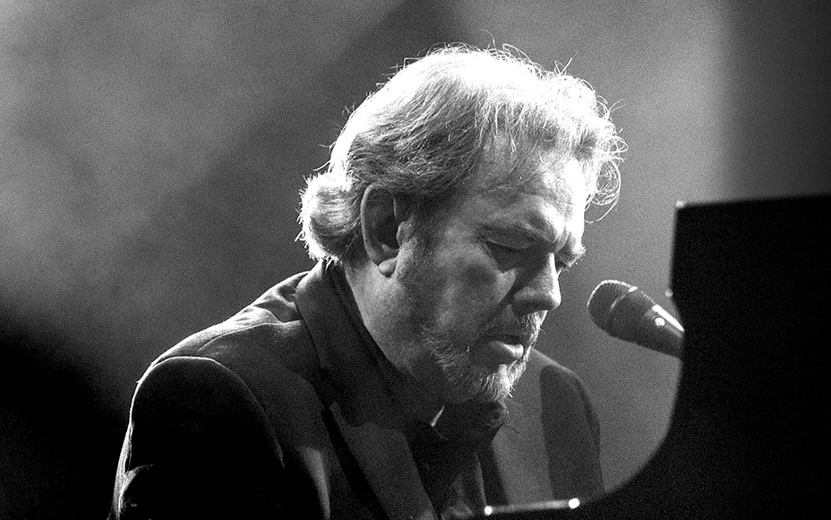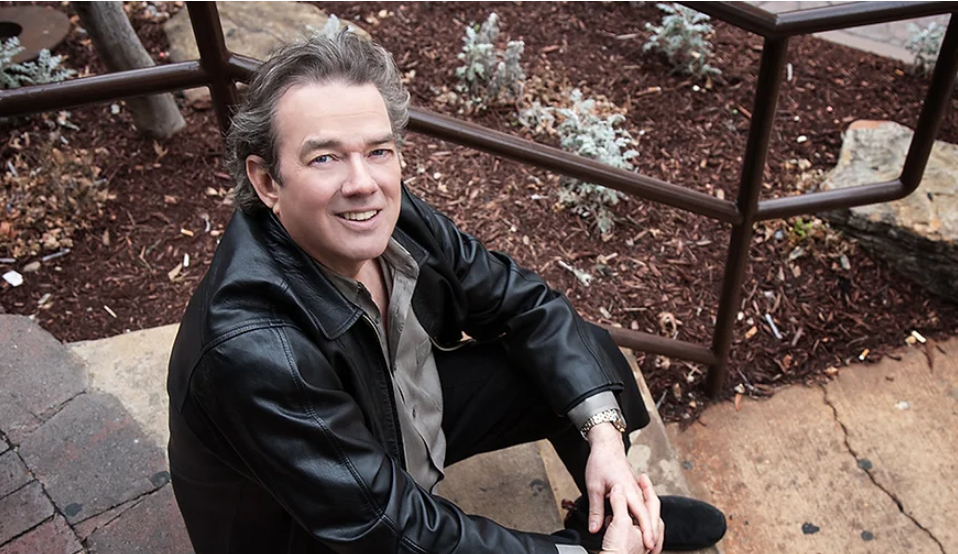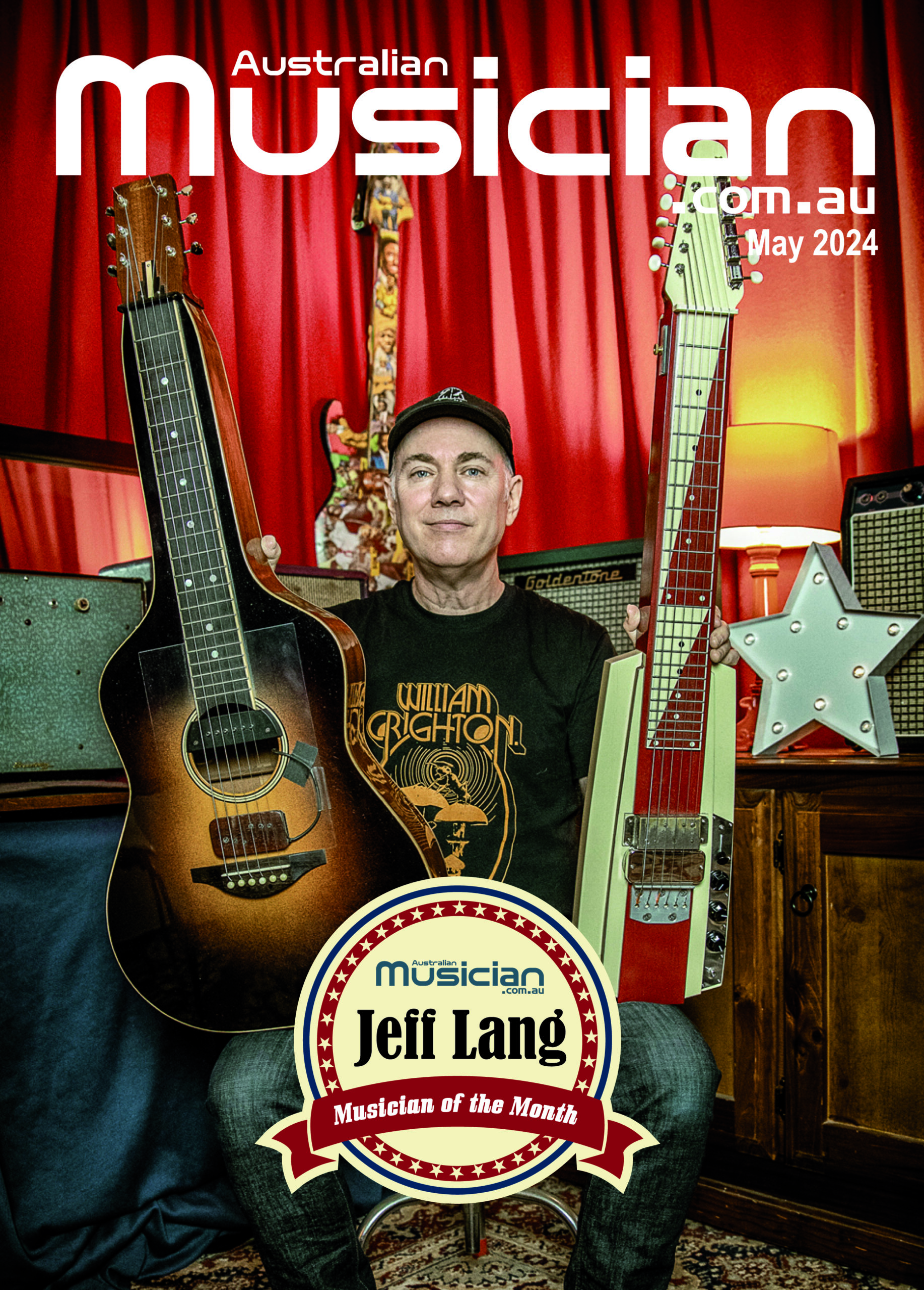
Acclaimed, multiple Grammy-winning songwriter Jimmy Webb returns to Australia for two very special solo concerts in Sydney (December 10th 2023 at City Recital Hall) and Melbourne (December 7th 2023 at Melbourne Recital Centre) this December. Ahead of the tour, Australian Musician editor Greg Phillips caught up with Jimmy for a chat about his career, songwriting and the upcoming tour.
Jimmy Webb has topped the charts from pop to country to soul and even disco with interpretations by some of the industry’s greatest singers, including Glen Campbell, Art Garfunkel, Linda Ronstadt, and Richard Harris, with covers by everyone from Frank Sinatra, Waylon Jennings, Donna Summer, and Isaac Hayes to Guns n’ Roses, Josh Groban and more.
In his touring show “An Evening with Jimmy Webb” touring Australia in December 2023, and his literary memoir, THE CAKE AND THE RAIN (paperback and audiobook) Webb brings fans of his music a unique connection to their favourite songs, revealing the stories behind his hits as far back as his first songwriting job at Motown through a career trajectory that took a teen preacher’s son from a farm town in Oklahoma to the top of his longed-for profession, with pitfalls and blessings in equal measure between.
In concert, Jimmy performs songs which are timeless touchstones for a generation, such as “MacArthur Park”, “Wichita Lineman,” “The Highwayman”, “All I Know”, “Honey, Come Back”, “The Worst That Could Happen”, “Where’s The Playground, Susie”, and “Galveston”.
In interviews, such as the one granted to me recently, Jimmy is as thoughtful and considered with his responses as he is with his song lyrics. He thinks before he speaks, disarming any possible ambiguities and is always intent on giving a complete answer to each question. We touched many bases in our conversation, including some songwriting tips and thoughts on his time with some of music’s icons, such as Elvis, John Lennon and Frank Sinatra. I began our conversation by asking if he thought much about his set lists prior to a tour or relied more on reading the room on the night of a concert?
Usually I have a show that I have done that has been successful and that would be my starting point. Then I think that in light of the fact that it is Australia, there might be some little changes that I would make. Honestly sometimes I don’t know what they are until I’m actually sitting at the piano and I feel the audience coming at me. If they are in high spirits, then I am in high spirits. I work towards that. Maybe I will put some less serious stuff in. Maybe I will have a little fun with them and teach them background parts or something. I think you put your finger on it, It’s very much who’s in the room that night and it is always a little bit different. Especially when it is an international affair, I think you have to have all your senses wide open and you know … please don’t say anything stupid that’s going to offend the national dignity (laughs). I think that’s a reality though. I think you’re a little on edge because you’re not really in your pond.
You must have songs writing ideas all of the time, how do you document your song ideas that you have while on tour?
I have a notebook, a tattered notebook, one of hundreds that I’ve had and it goes everywhere with me and every time I have something that might fit a lyric, might be a song title, might be an idea to do a record with somebody, or just freeform, poetry … lines that come to me. All of that is always written down. And this is one of the things I put forward in my book on songwriting, which is ‘Tunesmith’ … to the songwriters is to always have a notebook. Well, today we all have a recorder in our hands with an iPhone. So I have recorded an awful lot of stuff on my iPhone because it is easy. I can grab it and say this is a good line for a song. I have a recording of these birds, I want to make this recording part of song. Just making it part of the creative milieu. That’s one thing that an iPhone is really good for. You can be sitting in a bar in Dublin hearing this great song and you can quickly record it … not for profit but just for education’s sake. I believe in just gleaning every bit of knowledge that comes my way, every bit of inspiration. I don’t ignore any of it. In fact I get up out of bed at night when I have ideas and write them down. Sometimes I’ll go on the piano and start playing, which my wife is amazed by. “What are you doing?” But it does happen.

You have been so influential to other songwriters and what the other writers say is that the best idea they got from you was to have a list of titles. Start with a title and work back from there … they all tell me that was an important tip from you.
Yeah, I have master list of song titles because song titles occur profusely. Not all of them get turned into songs but the song titles themselves are abundant and that may happen in a restaurant when you’re overhearing conversation with someone else and a phrase pops out of a conversation that I’ve got to remember. Then it goes on the back of a napkin. If your notebook is not with you and you’re iPhone is not with you, grab something and write it down. I’ve written some hit songs from napkins. I believe strongly in napkins, let me recommend that.
I’d suggest a lot of those napkins are either in or belong in a museum!
Well that would be very flattering. I wish somebody would return my original manuscript for the McArthur Park arrangement, which went missing round 40 years ago. That would be something maybe worth putting in someone’s collection but sadly I don’t have that. I have some of the early lyrics, the attempts that I made to write Wichita Lineman before I actually got it right. I have stuff like that lying around. Sometimes people are interested in it. If it is a very important song, sometimes people might be interested.
When you sit down at the piano, what are the tricks you have learned to avoiding repeating yourself?
Well that’s tricky. I think it is trickier the older that you get because you have more to worry about in terms of repeating yourself. In fact you may have already started to repeat yourself a decade before and now you’re really in it. You are repeating your repeats! One of the hallmarks of real songwriting to me is originality. I caution young songwriters against calling songs White Christmas or songs named Easter Parade. I think that it is so important. I think as you get older, it becomes hard because you really touched a lot of bases. You have written a lot of different things. You have written a lot of melodies. You have used some cadences in your chords. You’ve used them and I am not comfortable with using them again. Nor am I comfortable with filching something off someone else’s record or someone else’s performance. I use the early 20th century composers Ralph Vaughan Williams, Benjamin Britten, Samuel Barber, Stravinsky, Debussy, Ravel, I sieve everything. I like to think that I don’t really steal, I just absorb the sound.
I have been working with twelve tones now and I have been exploring the way that composers get from one twelve tone scale into a diatonic scale and explore that, then come back to the twelve tone, which is the entire secret to all those wonderful things like La Mer and all the magnificent tone poems that were created by … particularly Ravel. Daphne and Chloe for instance. So the machinations of that are fascinating. I’m always trying to push myself into some new areas and I don’t think that growing older is an excuse for just repeating yourself. The last time I spoke to Al De Lory, who was Glenn Campbell’s arranger before he passed, I said Al what are you doing? He said I’m working with twelve tone! I just thought about it the other day, I’ve reached the same … well, wherever he was, that’s where I am now. I’ve gone down the same path just in search of some more materials to use, original materials.

How do you know when a song is finished and to leave it alone?
I think that people are a good barometer. If there are four or five people around you that you can trust and I mean trust musically… I believe in playing them for people individually, originals. I play them in my shows quite often and I judge the audience’s reaction to any song. If it’s luke warm it definitely colours my thinking. Sometimes it’s like, ok maybe this isn’t ever going to be great but maybe I can go back and make it great if they weren’t that excited by it. I think that is the only thermometer we have is the people around us, otherwise we take the Wagnerian attitude that whatever we write is great and the world be damned. I depend on others. Other people’s opinions are valuable to me but I don’t as a rule collaborate. Now there are collaborations on record with Carly Simon, Gerry Beckley of America, Kenny Loggins of Loggins and Messina. There are various people that I have knocked off a song or two over the years but it is not the way I write and it’s never particularly comfortable to me and I am just not very good at it. So that kind of advice, I don’t solicit. I don’t really need partners. I think that my partner is invisible and he sends ideas to me. I mean I have a partner but not a human one. I have a spiritual one. Otherwise I would not know how to judge a song’s worth except by someone else’s reaction to it.
You have written songs for and met some of music’s greats. I wanted to get your perspective on three of the biggest … Frank Sinatra, John Lennon and Elvis Presley. What were they like to be around and was there a trait they all had in common?
Elvis Presley, I was very cynical about. I went up to Las Vegas to see him, as a kind of ‘wait and see’ because it was 1969 and he had not been around for a long time but I was absolutely bowled over. His performance was staggeringly powerful even though he didn’t seem to take it very seriously. He had a magnetism. He actually controlled the audience, there’s no doubt in my mind because I felt it fall over me. I made some repeat visits there. I went up to see him two our three times. I was with him in intimate surroundings, you know, in his dressing room. There were other people there and in his suite upstairs called the Nancy Sinatra suite, this was at the International Hotel. I felt like he was wonderful. I know he really wanted to cut MacArthur Park but Tom Parker intervened. I think that Tom Parker kept Elvis away from a lot of good things. He chased The Beatles away, he chased Leiber and Stoller away and he chased me away. Everybody had the same story. Once the colonel got into it, your days were numbered. I think Elvis and I liked each other. I saw him as someone sitting on an ice flow, slowly floating away from me. That’s exactly the way I felt about him. I felt like waving goodbye because there was just something eerie about his situation with that man.
As far as John Lennon is concerned, I wept the day he died. I was in New Zealand as a matter of fact, in Queenstown New Zealand when I found out that he’d died and the way that he’d died. The fact is I didn’t know him very well. There were a couple of times where I pitched in to help him with some things, a legal situation that he was going through. I was in Los Angeles, my friend Harry Nilsson and I and he asked for my testimony deposition and I went down and I gave my testimony. I think he was in my view, aside from the two or three people that he chose as his running mates, he was very distant. He and I never sat down and had a heart to heart talk, like I did With David Crosby, two sailors sitting down talking about their sail boats. I don’t know what else to say about him other than I respected him but there was no way I loved him.
I didn’t have the same relationship that I had with Mr Sinatra, who was like a second father to me. He gave me shout outs from the stage … this song is by Jimmy Webb. He would take me out to the Jockey Club for dinner. When I walked into the Caesers Palace in Las Vegas to visit with Mr Sinatra, everything was covered and I mean everything. I didn’t pay for my room, I didn’t pay for the show. If I wanted to throw away some money at the tables, that was my affair but aside from that I paid for nothing while I was there. He would sit in a big armchair, a comfy armchair and listen to songs and have a cigarette. It wasn’t frantic, he wasn’t empirical, he was very gentle with me. He treated me like a son. The difference in our ages was marked. Nevertheless, he respected me though I were someone of his age group. I called him Mr Sinatra. I was very close with Nancy, who was a lovely child when I met her. I liked Frank Jr. I thought Frank Jr was a really good singer and that he had a raw deal growing up in his father’s shadow. He was a wonderful guy, I would have made a record with him at any time. He was a wonderful singer. I was closer with that family than I was with a lot of others. Wes Farrell, Tina Sinatra’s husband came to me and said, do you mind if I use part of your arrangement for The Worst That Could Happen. He’s the guy that cut a huge hit with The Worst That Could Happen with Johnny Maestro & The Brooklyn Bridge. So there were ties to that family. I have a friend Judy Collins who says there are friends of the road and friends of the heart. I would say that Mr Sinatra was definitely friend of the heart.
What haven’t you done musically that you’d still like to do?
I haven’t had a successful broadway show yet and I’ve been in New York for 40 years, so that’s a mountain I am still trying to climb. It’s very difficult because my collaborators keep passing away, literally passing on in the middle of projects. It has happened to me twice now. It’s probably the single most difficult thing in the world to do, to write a successful broadway show. To get it up and running, you have my respect and my eternal admiration if you can get your show up. If you can raise the money and have an opening night, my hat is off to you. It’s rather difficult. I haven’t done that yet.
I would really like to score a wonderful film. I don’t feel that I have ever had a chance to do that. I have done films but I don’t think they were particularly good casting for me and I don’t think the films were really good in retrospect. That’s not to say my music was better, it’s just to say it wasn’t the right movie for me. So I would like to have that wonderful thing happen to me. You know, The Postman Always Rings Twice, I’d like to have that kind of movie come at me before we turn out the lights, before we close the curtain. I’d love to have a chance at a quality … like a Merchant and Ivory quality film, something with some meat on the bones.
Well, thank you for your time Jimmy, it’s been an honour to chat with you and we look forward to seeing you down here in Australia.
You know I must tell you before you say goodbye, that I love Australia. It’s my second country and if Trump is elected president in 2024, I may be your new neighbour. I think Graham Nash is going to come down with me! I absolutely love Australia and I have a son in Melbourne and three grandchildren that I haven’t seen, so this is going to be a really sentimental journey. The opportunity to perform for the Aussies, to get back up on the stage and feel their energy and their lovely approach to life and their matesmanship, if you will, I am looking forward to it so much.
An Evening with Jimmy Webb Australian Tour 2023
Thursday December 7
Melbourne Recital Hall
Sunday December 10
Sydney City Recital Hall
Tickets: www.davidroywilliams.com
For more, visit www.jimmywebb.com.


